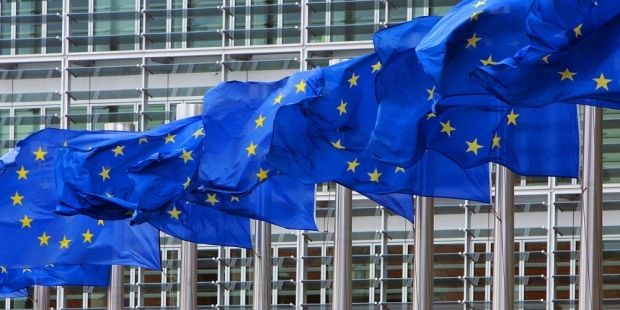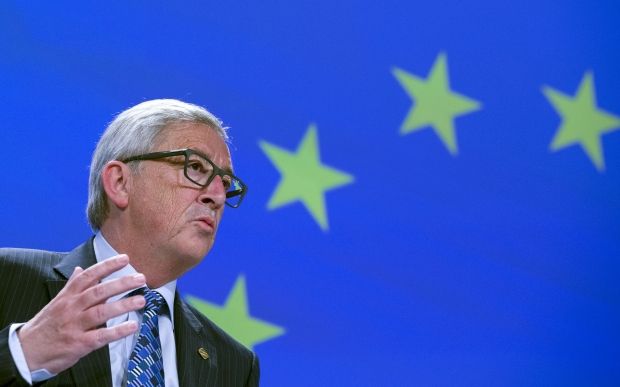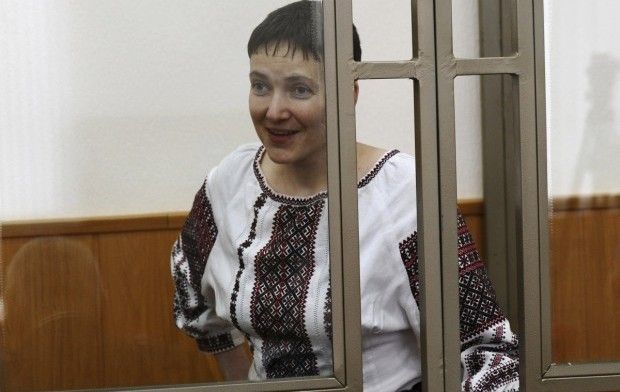
Ukrainian interest. Gaffe in Brussels, Berlin’s reasoning, and culmination of Savchenko case
The Ukrainian Week at the European Parliament can hardly claim a status of a diplomatic breakthrough in relations between the legislatures. German foreign policy ambitions are reflected in the increasing pressure on Ukraine. The trial of Nadia Savchenko in Russia approaches its climax.
Ukraine’s highly-representative delegation of dozens of parliamentarians and an expert group landed in Brussels, in order to demonstrate an interest in the transformation of the Verkhovna Rada from the wreckage of the Soviet lawmaking imitation into an effective legislature. However, in the political capital of the European Union the Ukrainian MPs led by Volodymyr Groysman were confronted with an address, full of bewilderment, by ex-president of the European Parliament Pat Cox, who communicates with Ukrainian politicians and trying to help them build democracy for old times’ sake.
Instead of presenting a clear plan for the reform of parliament, the Rada speaker took part in the presentation of a nearly 90-page report written in the best traditions of European political correctness and hardly able to help in resolving the current crisis. The statements by the pro-presidential BPP faction Yuriy Lutsenko voiced in Brussels were deliberately loud, but not supported by real actions.
As a result, Ukrainian parliamentarians were forced to swear to the people in all possible ways that this year, Ukraine will receive a visa-free regime with the EU. In light of the upcoming Dutch referendum in April over the Ukraine- EU Association Agreement, this looks somewhat problematic. It should be understood that Kyiv’s failure on the background of rapprochement with Brussels of Chisinau and Tbilisi can become a real awkward backslap in the face of the Ukrainian authorities – all of them, with no exceptions. Although there’s still some time to correct the situation, it’s not the fact that Ukraine’s officials will be able to smother their own song.

Statement by President of the European Commission Jean-Claude Juncker that it will take another 20-25 years for Ukraine to pave its way to the European Union and NATO has caused mixed reactions both in Ukraine and in its partner states. But the experienced European official is right, however disappointing it might be to realize, since the desperate lack of reforms in Ukraine, given the country’s scale and the European standards, is a serious challenge. And the ability to present an adequate response to challenges is a really serious task for the president and the entire political elite.
Today, in addition to domestic challenges Ukraine faces a tougher stance of its European partners. For example, the foreign ministers of Germany and France have both expressed confidence in a possibility to hold local elections in militant-controlled areas of Donbas in the first half of 2016. The logic of Berlin and Paris is clear – they seek to get over with the largest-scale conflict in Europe over the past 20 years and boast their successful mediation. To be more convincing, Karl-Georg Wellman, a Bundestag deputy, who is co-founder of the Agency for Modernization of Ukraine, funded by a Ukrainian businessman Dmytro Firtash, spoke about the drafting a new "Marshall Plan" for Ukraine. It’s just that the political conditions for the implementation of this plan may be unacceptable for Ukraine.
Without stabilization in eastern Ukraine, Angela Merkel’s claims on the strengthening of the role of Germany outside Europe appear to be unfounded. However, these aspirations have not made the Paris talks of the Normandy Four foreign ministers more successful. Despite enthusiasm of a freshman to these talks, Jean-Marc Ayrault, the talks saw no significant breakthrough. Russia continues to play cat and mouse with the West, reveling in its own impunity, while Ukraine is not willing to make concessions to the Kremlin and its Donbas puppets.

The Kremlin’s behavior narrows critically the space for seeking political compromise. In a sham trial of Nadia Savchenko, whose lawyers have brilliantly defied all arguments of the prosecution the prosecutor still requested a 23 years' imprisonment, while the judge actually deprived the defendant of the right to her last word. Savchenko announced a hunger strike, stressing that she considers herself innocent and opposes exchange for two Russian GRU officers detained in Donbas. On March 9, a campaign will be held across the world in support of demands to release Nadia Savchenko.
Yevgeny Magda

